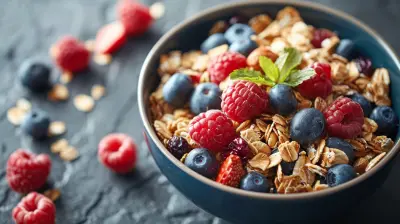The Role of Fiber in Weight Loss and Digestive Health
5 June 2025
When it comes to shedding pounds and keeping your gut happy, fiber is an unsung hero. Despite being a seemingly simple nutrient, fiber has a powerful impact on both weight management and digestive health. But how exactly does it work? And how can you make sure you're getting enough?
Let’s break it all down in a way that makes sense.
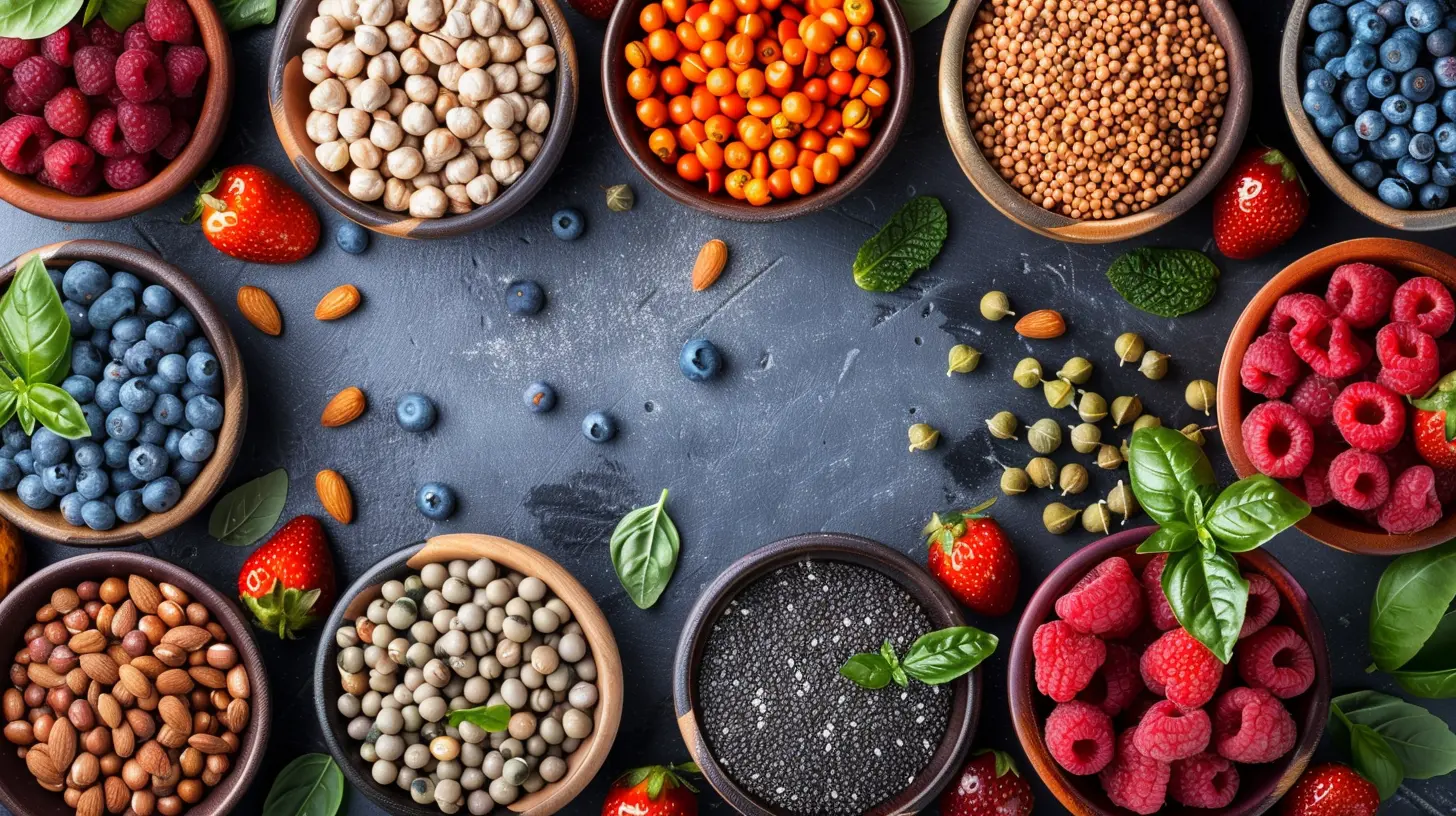
What Is Fiber?
Fiber is a type of carbohydrate, but unlike sugars and starches, your body can't fully digest it. Instead, it moves through your digestive system largely intact, aiding in multiple body functions along the way.There are two main types of fiber, and both play key roles in maintaining a healthy weight and a well-functioning digestive system:
1. Soluble Fiber – Dissolves in water to form a gel-like substance. It slows digestion and helps lower blood sugar levels and cholesterol.
2. Insoluble Fiber – Adds bulk to stool, helps food pass through the digestive tract, and prevents constipation.
Both types are essential, and a well-balanced diet should include a mix of them for maximum benefits.
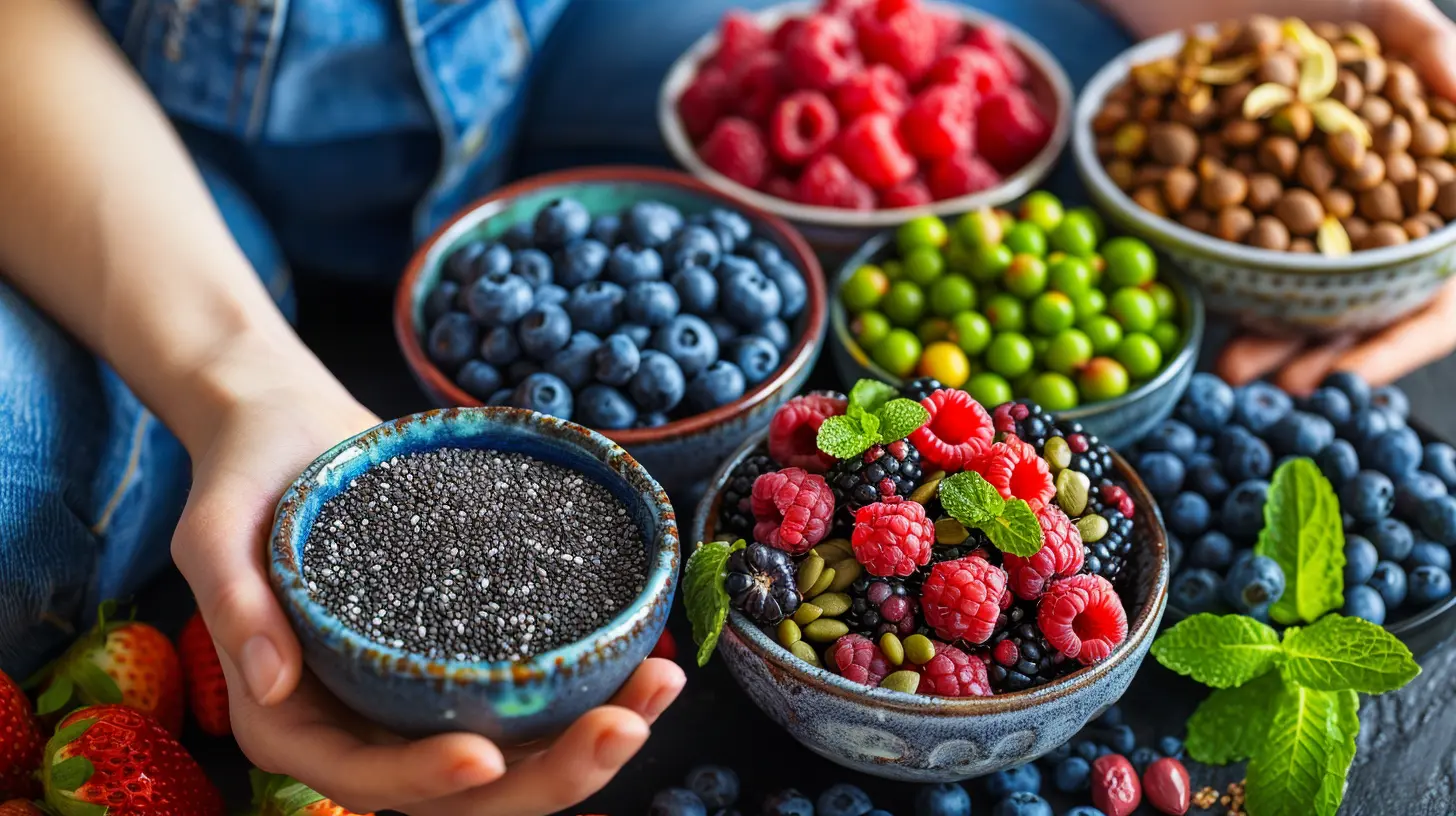
How Fiber Helps with Weight Loss
If you’ve ever struggled with dieting, you know that hunger can be a major roadblock. This is where fiber can be a game-changer.1. Keeps You Full Longer
Fiber-rich foods slow digestion, meaning they stay in your stomach longer and keep you feeling full. This helps curb cravings and reduces the chances of overeating. Think of fiber like a natural appetite suppressant—without the harmful side effects.2. Reduces Caloric Absorption
Certain fibers, especially soluble fiber, can reduce the number of calories your body absorbs from food. Since fiber isn’t digestible, it passes through your system, carrying some extra calories along with it. Essentially, you're consuming fewer calories without actually eating less food.3. Regulates Blood Sugar and Reduces Fat Storage
High-fiber foods help slow the absorption of sugar into the bloodstream, preventing insulin spikes. When insulin levels remain stable, your body is less likely to store fat. This is particularly important for people struggling with belly fat or insulin resistance.4. Promotes Healthier Eating Choices
Most high-fiber foods—like fruits, veggies, whole grains, and legumes—are naturally packed with other essential nutrients. When you emphasize fiber-rich foods in your diet, you automatically steer clear of processed junk that contributes to weight gain.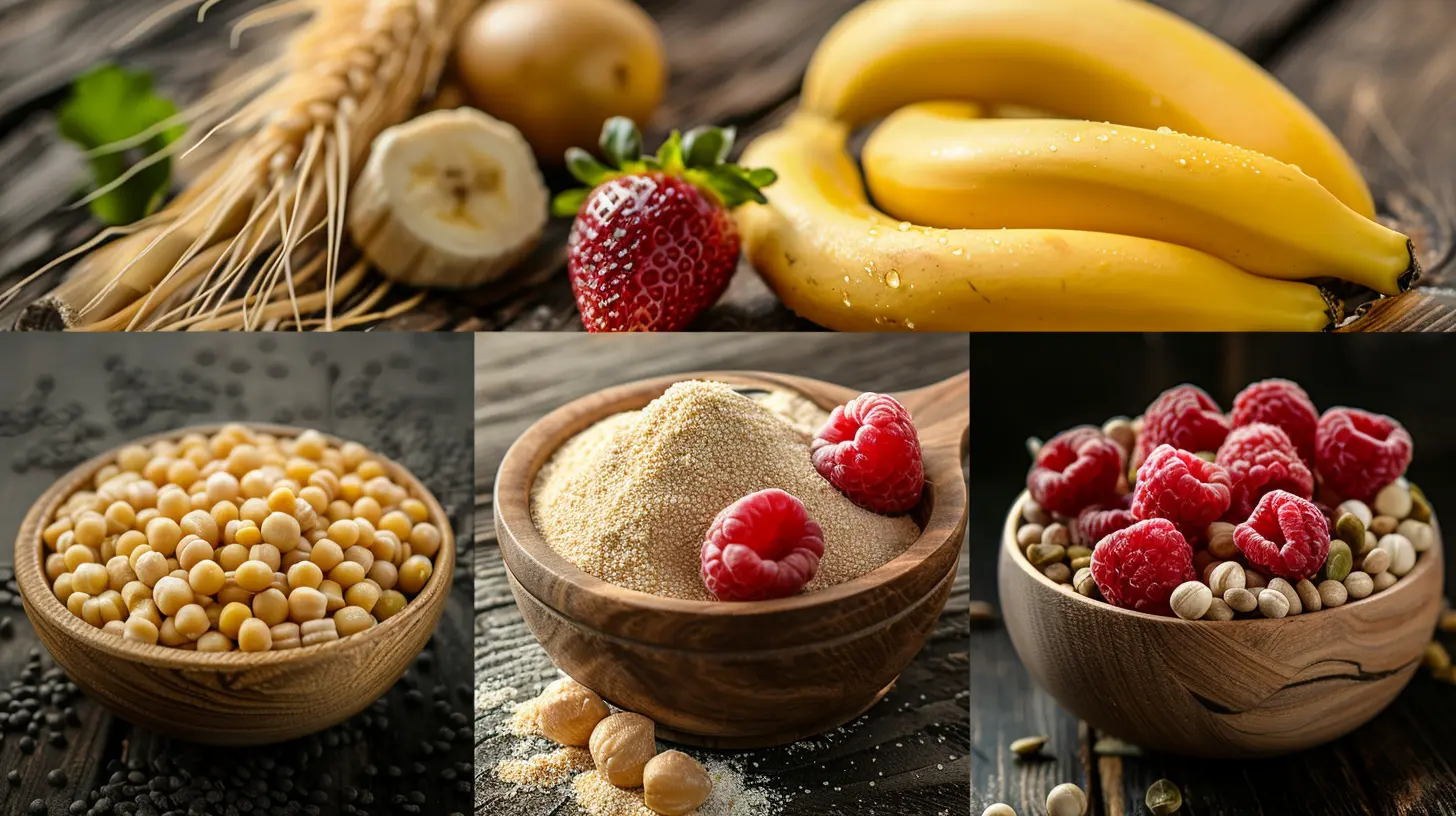
The Role of Fiber in Digestive Health
Your gut is home to trillions of bacteria, collectively known as your gut microbiome. Fiber plays a crucial role in keeping this ecosystem balanced and thriving.1. Prevents Constipation
If you've ever struggled with irregular bowel movements, fiber might be the missing ingredient in your diet. Insoluble fiber adds bulk to stool and helps it pass through the digestive tract smoothly, reducing the risk of constipation.2. Feeds Good Gut Bacteria
Your digestive system isn’t just working for you—it's home to countless beneficial bacteria that help break down food and protect against harmful microbes. Fiber, particularly prebiotic fiber, acts as food for these bacteria, helping them grow and thrive. A healthy gut microbiome is linked to better digestion, improved immune function, and even enhanced mood.3. Reduces Risk of Digestive Disorders
A high-fiber diet can lower the risk of several digestive issues, including:- Irritable Bowel Syndrome (IBS) – Fiber helps regulate bowel movements, reducing symptoms like bloating, gas, and stomach pain.
- Diverticulitis – This condition occurs when small pouches form in the colon and become inflamed or infected. Fiber helps prevent this by keeping the digestive system moving efficiently.
- Hemorrhoids – Straining due to hard stools can lead to hemorrhoids, but a high-fiber diet softens stools and makes them easier to pass.
4. Supports Healthy Bowel Movements
Fiber essentially acts like a broom, sweeping waste through your digestive tract efficiently. The result? Regular, healthy bowel movements that prevent bloating and discomfort.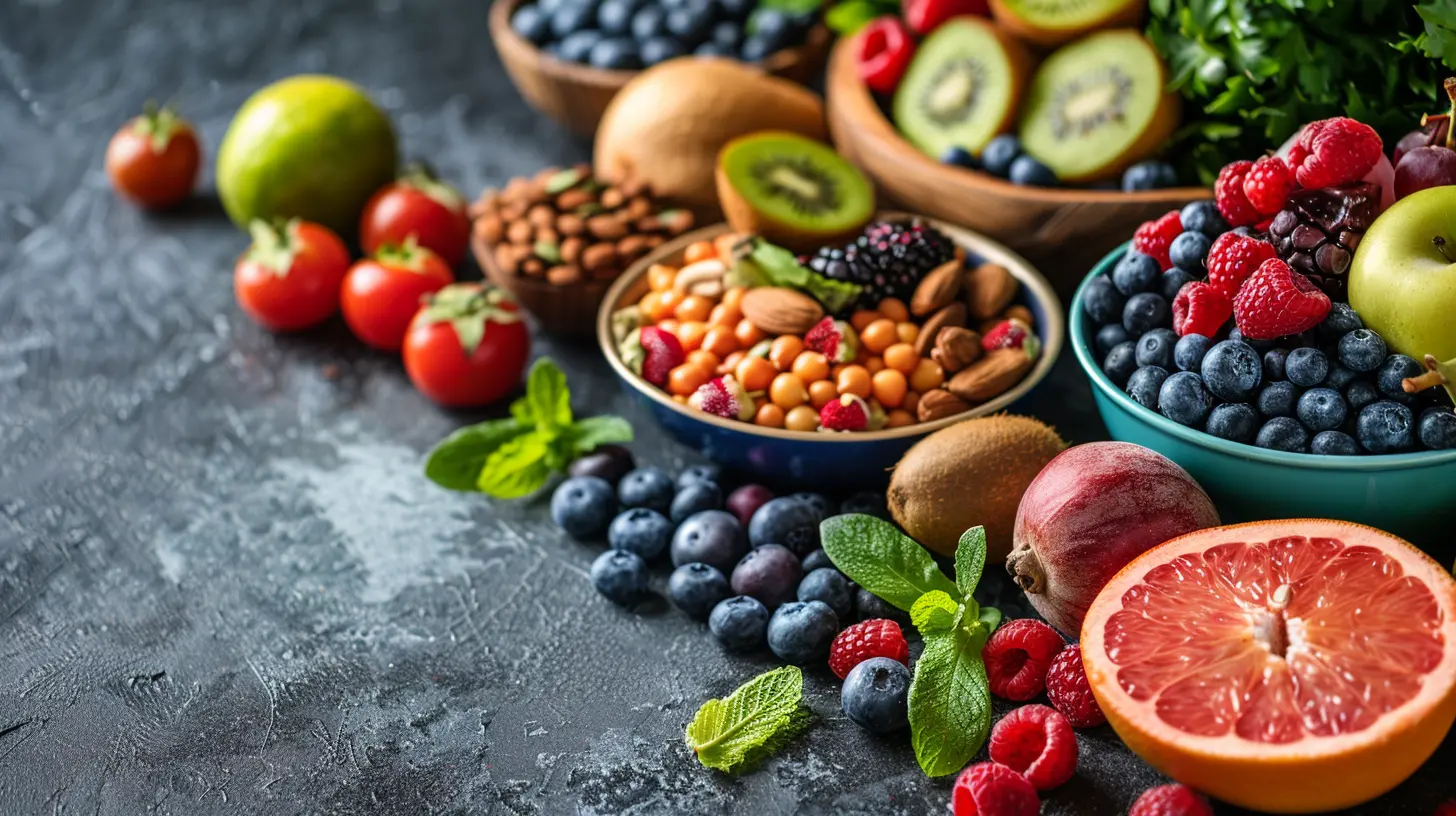
How Much Fiber Do You Need?
The amount of fiber you need depends on your age and gender, but general daily recommendations are:- Men (50 and younger): At least 38 grams
- Men (51 and older): At least 30 grams
- Women (50 and younger): At least 25 grams
- Women (51 and older): At least 21 grams
Unfortunately, most people fall short of these recommendations, averaging only about 15 grams per day. Increasing your intake can have a dramatic impact on both your weight and digestive health.
Best High-Fiber Foods to Add to Your Diet
If you’re looking to boost your fiber intake, start by incorporating more of these foods into your meals:Fruits
- Apples (with skin)- Berries (raspberries, blackberries, blueberries)
- Pears
- Oranges
- Bananas
Vegetables
- Broccoli- Carrots
- Brussels sprouts
- Sweet potatoes
- Spinach
Whole Grains
- Oats- Brown rice
- Quinoa
- Barley
- Whole wheat bread & pasta
Legumes & Nuts
- Lentils- Chickpeas
- Black beans
- Almonds
- Chia seeds
Tips to Increase Your Fiber Intake
1. Start Slow – If you’re not used to eating a lot of fiber, increase your intake gradually to avoid bloating and gas.2. Drink More Water – Fiber needs water to move smoothly through the digestive system. Drink plenty of fluids to keep everything running smoothly.
3. Switch to Whole Grains – Replace white bread, rice, and pasta with whole grain alternatives for an easy fiber boost.
4. Snack Smart – Instead of chips or cookies, go for fiber-rich snacks like nuts, seeds, or sliced fruits.
5. Add Beans & Legumes – Try incorporating beans into salads, soups, or even pasta dishes.
6. Eat More Vegetables – Aim to fill half your plate with vegetables at each meal to naturally increase your fiber intake.
The Bottom Line
Fiber is one of the most underrated nutrients when it comes to weight loss and digestive health. It helps keep you full, regulates digestion, stabilizes blood sugar, and promotes a healthy gut microbiome. Yet, most people don’t get nearly enough of it.By making simple changes to your diet—like eating more whole grains, fruits, veggies, and legumes—you can dramatically improve your health, shed unwanted weight, and keep your gut in top shape. So why not start today?
all images in this post were generated using AI tools
Category:
Healthy EatingAuthor:

Eileen Wood
Discussion
rate this article
2 comments
Celine McNair
Who knew fiber could be such a superstar? Not only does it keep our tummies happy, but it also helps us shed those pesky pounds! Time to embrace our inner ‘fiber fan’—let’s make our plates colorful and our digestion delightful!
June 12, 2025 at 4:31 PM

Eileen Wood
Thank you! Embracing fiber truly transforms our health—let's celebrate colorful plates and happy tummies together!
Nala James
Incorporating fiber into your diet is essential for both weight loss and digestive health. It promotes satiety, regulates blood sugar levels, and supports gut health. Small, consistent changes can lead to significant improvements in overall well-being and weight management.
June 7, 2025 at 4:11 PM

Eileen Wood
Thank you for your insightful comment! Indeed, fiber plays a crucial role in promoting satiety and supporting digestive health, making it an essential component of any weight loss strategy. Small, consistent dietary changes can yield significant benefits.
